Blog archives: Web 2.0 tools as sources for social history
PS. This is not about archives of manuscripts, artifacts and museology stuff. This is not even about digital archives or concerns about Archiving the e-generation. Bloggers wonder and would say, Wow: Blogs as social history?
Web 2.0 tools, like blogs, podcasts, RSS, and wikis, into education is becoming a common feature. But nations caring to take steps about this (so called personal-private diary-like) source, is worth documenting.
This Blog-archive-story is a national plan to index, store, and share social history as depicted in Blogs. Historians, librarians, archivists are now sharing a common tool for common purpose.
Blog archives? Posted by George, September 11, 2006
You mean this stuff will be sticking around forever?!? Eeep! The wonderous Maud points to an article on the National Library of Scotland’s (hey, is Scotland allowed to have a “national” anything? Ouch!) plan to archive the blogs of leading Scots.
THE National Library of Scotland is to create an archive of the blogs, journals and e-mails of leading Scots, which curators claim are the manuscripts of the 21st century, writes Karin Goodwin.
Full story: National Library to store blogs
See also:
LONDON (AFP) - The details of a day in the lives of hundreds of thousands of Britons will reportedly be recorded and compiled into a digital time capsule that will be stored permanently at the British Library.
The "One Day in History" project, described as a "blog for the national record," will feature British celebrities such as actors Stephen Fry and Derek Jacobi, and the writer Bill Bryson contributing to the compilation, along with any Briton with access to the Internet who wants to participate, The Sunday Times reported
Students and teachers at 29,000 schools have also been invited to join in the project, along with pupils at the Dubai British School, who will blog about expatriate life in the Middle East. Any Briton who logs on to the website www.historymatters.co.uk can also submit their own contribution.
Anyone who participates is asked to submit between 100 and 1,000 words about their day on Tuesday, in either English or Welsh -- the project was inspired by mass observation exercises conducted by sociologists through and since World War II to record the details of daily life.
"We want this day to have its own place in history and be a snapshot of everyday life at the beginning of the 21st century," said Fiona Reynolds, the director-general of the National Trust, which is organising the project.
Previous posts:
Technocrati Tags:Archiving
Knowledge sharing
Web 2.0
Library2.0;
Library 2.0
Streaming media
Library Education
Labels: Best Practices, Blog archives



0 Comments:
Post a Comment
<< Home